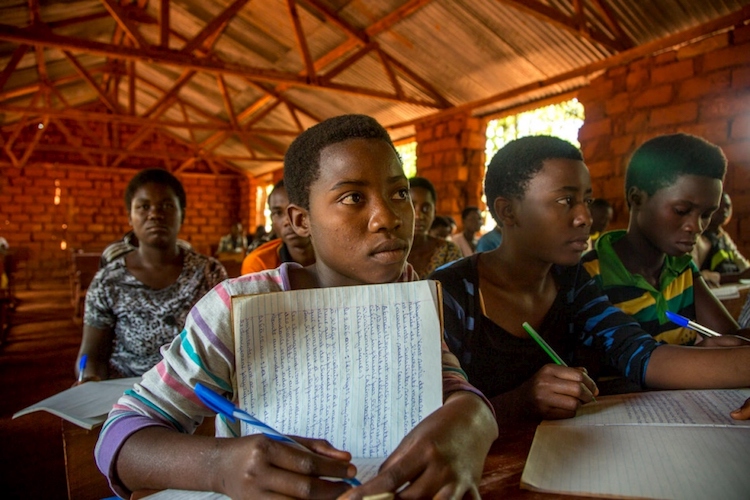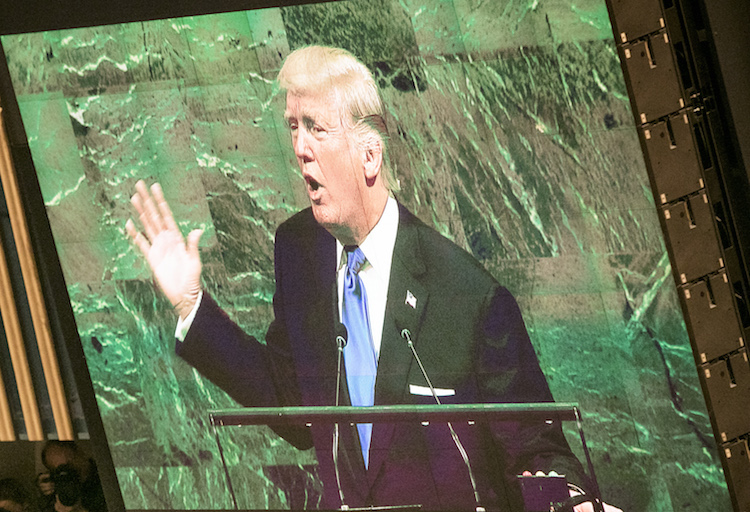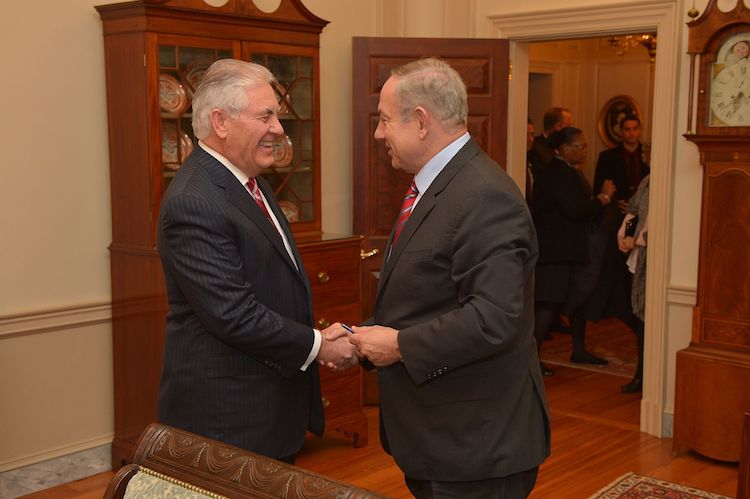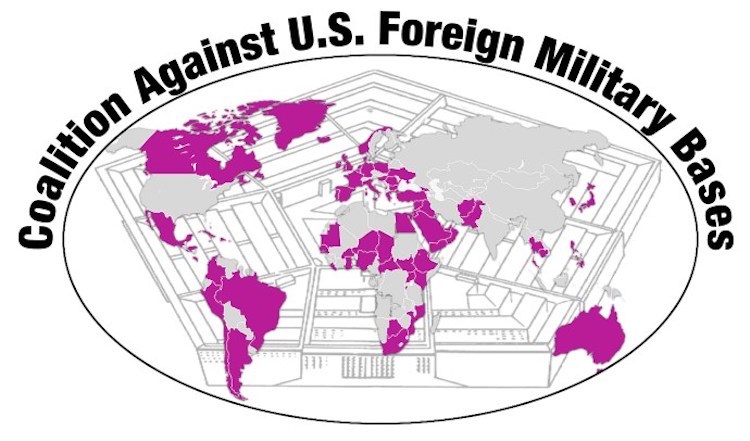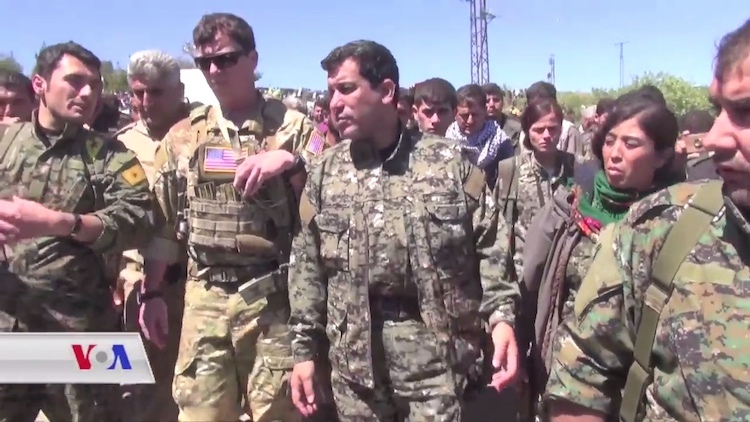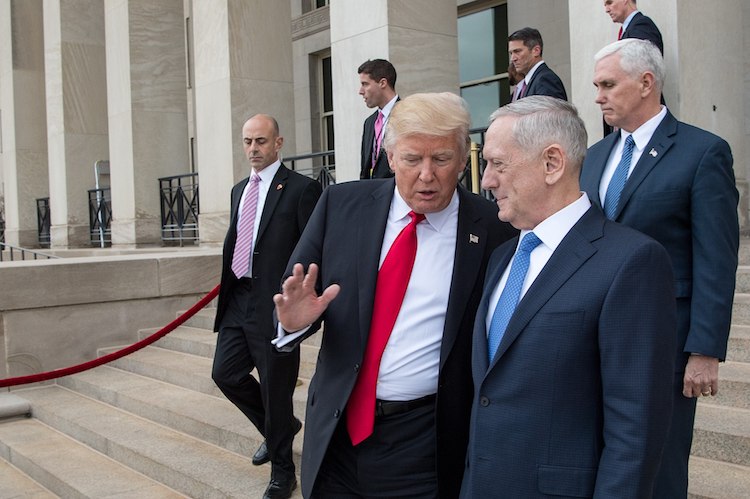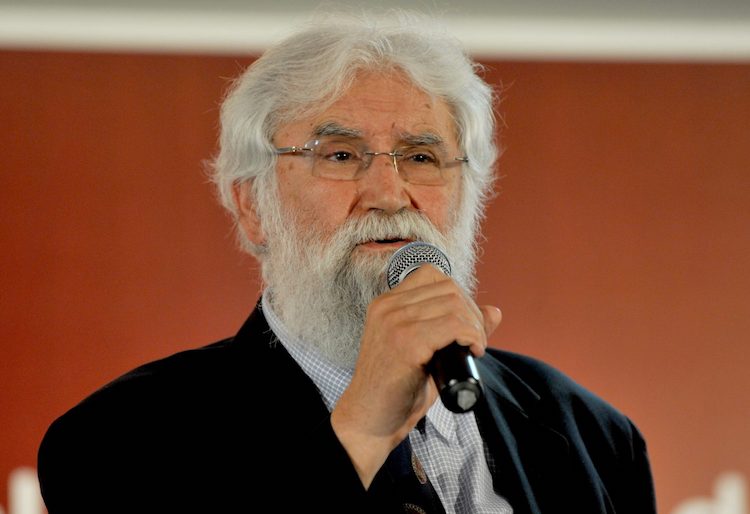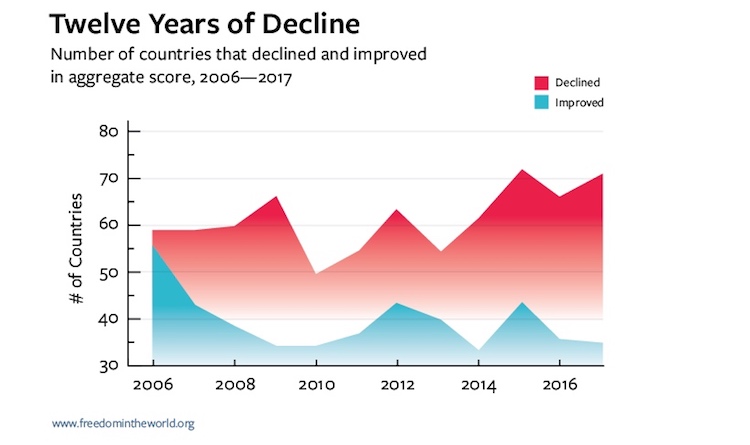Viewpoint by Scott Morris Scott Morris is a senior fellow at the Center for Global Development and director of the US Development Policy Initiative, which seeks to broaden the US government’s approach to development. He also works on issues related to the International Financial Institutions (IFIs) and particularly the relationship between the IFIs and the […]
Refugees, Migrants Need Courageous European Leadership
Viewpoint by Idriss Jazairy Ambassador Idriss Jazairy is the executive director of the Geneva Centre for Human Rights Advancement and Global Dialogue and the former head of a UN specialised agency, IFAD. This article first appeared* in EURACTIV on February 5, 2018 and is being re-published with their permission. GENEVA (IDN) – More people than […]
Trump Might Well Break International Law Over North Korea
Viewpoint by Jonathan Power* LUND, Sweden (IDN-INPS) – We are soon going to have a clash between President Donald Trump and international law. This is predicable when one examines the presidential discourse over what to do about North Korea and its possession of nuclear-tipped rockets. He has threatened “fire and fury” which doesn’t sound like […]
Trump Appears to be Getting Ready to Wage War in Syria
Viewpoint by Jonathan Power* LUND, Sweden (IDN-INPS) – President Donald Trump said it would never happen. Now it is. During the election he said he did not want more interventions – no more Iraqs, no more Afghanistans, Libyas or Syrias. A year into his presidency the American military is involved in all these places and […]
US Military Bases Devastating Communities Across the World
By Alice Slater* This article was originally published in The Nation on January 24 with the caption: ‘The US Has Military Bases in 80 Countries. All of Them Must Close.’ It is being reprinted with their permission. NEW YORK (IDN-INPS) – On the weekend of Martin Luther King Day (January 15), Baltimore University fittingly hosted […]
Trump’s Kurdish Militia in Syria
By Pier Francesco Zarcone* ROME (IDN) – The U.S. decision to train about 30,000 men of a Kurdish militia on the Turkish-Syrian border was considered a reckless initiative with catastrophic consequences – and that immediately turned out to be the case – but, paradoxically, it is also understandable in the global Syrian situation. Let us […]
Mattis-Trump Duo Uncovers China and Russia as US Adversaries
Viewpoint by Jonathan Power* LUND, Sweden (IDN-INPS) – The American secretary of defence, Jim Mattis, has declared a new era: “There has been a return of great power competition ……great power competition – not terrorism – is now the primary focus of U.S. security.” In the new national defence strategy document*, unveiled on January 19, […]
The Earth’s Future Will Not Come from Heaven
Viewpoint by Leonardo Boff The author is a Brazilian liberation theologian, author and campaigner for the rights of the poor and disadvantaged. He is a professor of theology, ethics and philosophy at universities all over the world and a member of the Earth Charter Commission. This article is a slightly modified version of an article […]
Concern Over Using Aid To Promote Rich Countries’ Commercial Interests
Viewpoint by Jesse Griffiths The writer is Director of Eurodad, the European Network on Debt and Development, a network of 46 civil society organisations (CSOs) from 19 European countries, which works for transformative yet specific changes to global and European policies, institutions, rules and structures. BUSSELS (IDN) – At first glance, the latest figures on […]
Democracy Under Assault and in Retreat Around the Globe
Viewpoint by Jonathan Power* LUND, Sweden (IDN-INPS) – Is democracy in decline? If you talk about the quality of democracy the answer is clearly yes. The US, the world’s first and most important democracy – although at the beginning a limited democracy for white men only – is in trouble. President Donald Trump has brought […]


